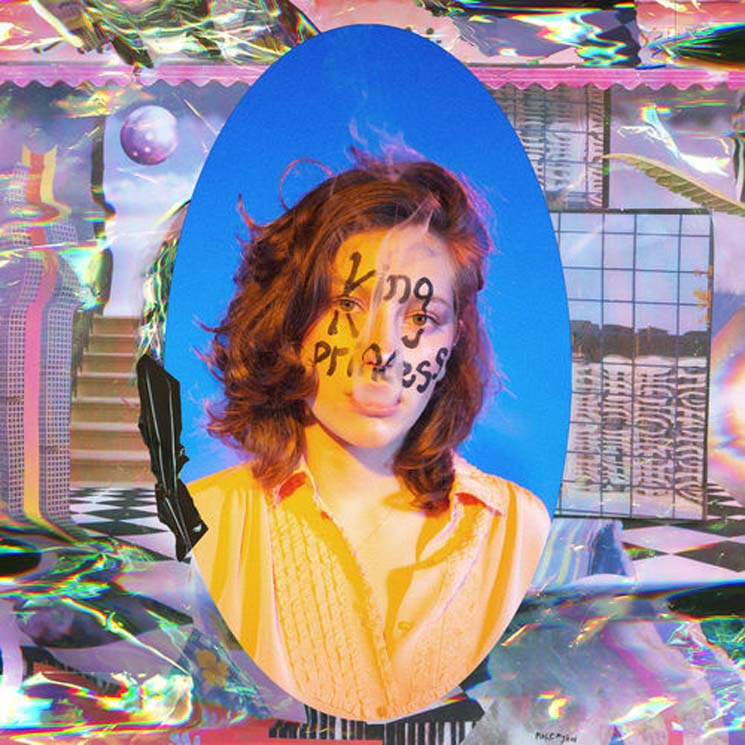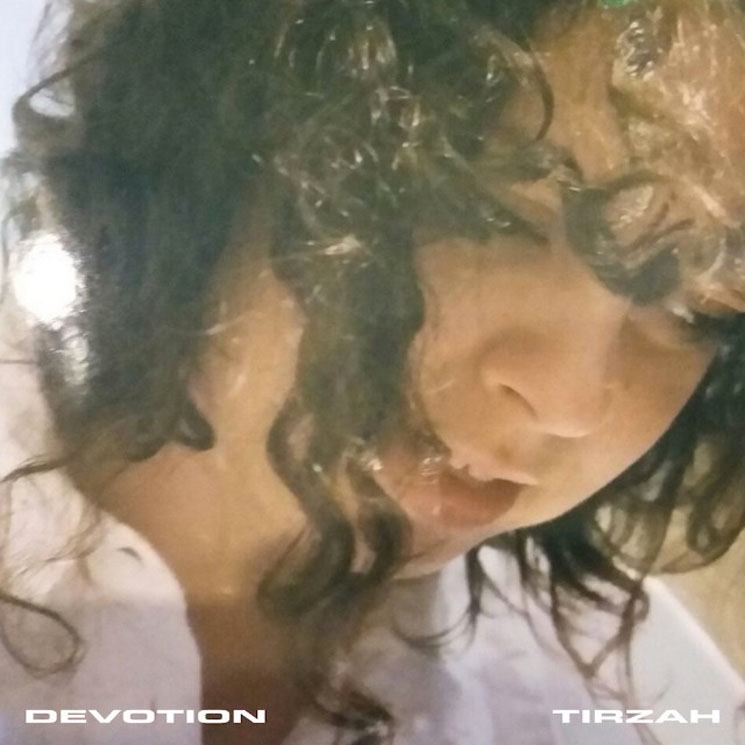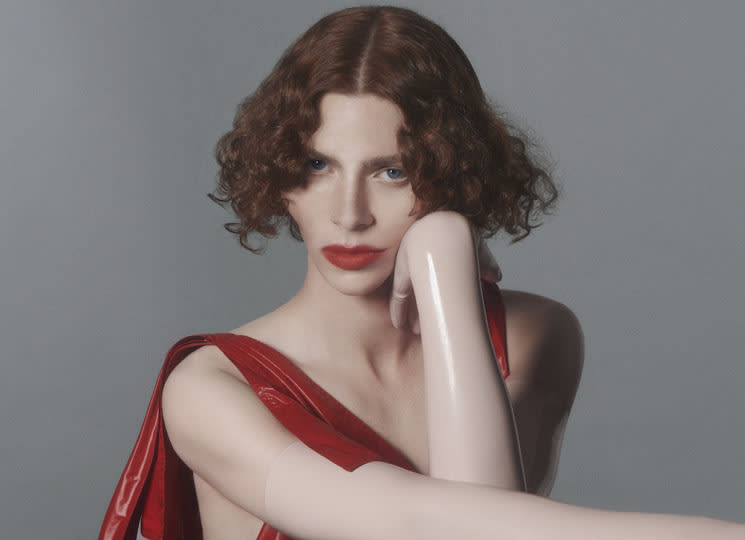While a whiff of nostalgia hung across the 2018 pop landscape, the past 12 months were nevertheless a banner year for forward-thinking pop music. Taking cues from Charli XCX and Robyn, both of whom released new instalments in their own reinterpretations of the form this year, a new generation of artists are trying on new sounds and aesthetics that push the boundaries of what pop music sounds and looks like.
SOPHIE
Oil of Every Pearl's Un-Insides
Robyn famously said that "fembots have feelings too," a claim that SOPHIE seems to have taken as a challenge on her debut album. While she's been making forward-thinking pop for a few years now, Oil of Every Pearl's Un-Insides marked a turn for the transgendered producer. Previously, SOPHIE revelled in manipulating vocals, chopping and pitching them into a genderless cri de couers. But on much of this record she sheds the hyperkinetic, AI-generated aesthetic and for the first time, on "It's Okay to Cry," even uses her own voice, unadorned. The result is a record that embraces the disorienting digital future but grounds it with real human emotion.
Troye Sivan
Bloom
Queer pop idols are nothing new, but for most, their sexuality was, at most, implicitly reflected in their music. Not so for Troye Sivan. The Australian singer makes his queerness explicit on sophomore record Bloom. This pivot made Sivan the subject of many thinkpieces, none of which would hold up if it weren't for the music itself, which ranges from shimmering modern dance pop to acoustic ballads. Sivan isn't a queer artist making music — he's an artist making music from decidedly queer point of view, documenting all the triumphs and tragedies that come with that.

King Princess
Make My Bed
Everything about King Princess seems effortless — from the woozy aesthetic of her debut EP, to her stunning rise helped by early co-signs by Harry Styles and Mark Ronson, the 19-year-old artist, born Mikaela Straus, makes everything look so damn easy. Baked into what on the surface feels like lo-fi bedroom pop, is a stunningly unceremonious presentation of her sexuality (she identifies as lesbian) that feels as radical as any fiery rallying cry. But Straus's casual air and wise-beyond-her-years lyrics, undergirded by dense, pristine production, reveals a singular talent in the making.
Empress Of
Us
There's a tendency in pop music to go big — big beats, big drops and a big, universal worldview. But on her sophomore record Us, Empress Of, aka Lorely Rodriguez, uses the form as a bait and switch. Impeccable production from the likes of Blood Orange and DJ Dodger Stadium pulls listeners in, but once hooked, they're confronted with a world that's surprisingly intimate and specific to Rodriguez's Latin-American upbringing in Los Angeles. As Rodriguez proves, sometimes inclusion is less about building one big tent than it is making space for all the little tents and the worldviews that come with them.

Tirzah
Devotion
Tirzah Mastin has seen pop's future, and its not on the dance floor. Rather, it's in the lineup outside, in the corners of the back alley and between the sheets in the early morning hours. Helping Mastin shape this vision is Mica Levi, known for both her film score work and her own forward thinking pop project, Micachu and the Shapes. Together they forge a sound that's at once dark and foreboding, overlaid with unguarded intimacy, late night bedroom pop that knows how to groove.
SOPHIE
Oil of Every Pearl's Un-Insides
Robyn famously said that "fembots have feelings too," a claim that SOPHIE seems to have taken as a challenge on her debut album. While she's been making forward-thinking pop for a few years now, Oil of Every Pearl's Un-Insides marked a turn for the transgendered producer. Previously, SOPHIE revelled in manipulating vocals, chopping and pitching them into a genderless cri de couers. But on much of this record she sheds the hyperkinetic, AI-generated aesthetic and for the first time, on "It's Okay to Cry," even uses her own voice, unadorned. The result is a record that embraces the disorienting digital future but grounds it with real human emotion.
Troye Sivan
Bloom
Queer pop idols are nothing new, but for most, their sexuality was, at most, implicitly reflected in their music. Not so for Troye Sivan. The Australian singer makes his queerness explicit on sophomore record Bloom. This pivot made Sivan the subject of many thinkpieces, none of which would hold up if it weren't for the music itself, which ranges from shimmering modern dance pop to acoustic ballads. Sivan isn't a queer artist making music — he's an artist making music from decidedly queer point of view, documenting all the triumphs and tragedies that come with that.

King Princess
Make My Bed
Everything about King Princess seems effortless — from the woozy aesthetic of her debut EP, to her stunning rise helped by early co-signs by Harry Styles and Mark Ronson, the 19-year-old artist, born Mikaela Straus, makes everything look so damn easy. Baked into what on the surface feels like lo-fi bedroom pop, is a stunningly unceremonious presentation of her sexuality (she identifies as lesbian) that feels as radical as any fiery rallying cry. But Straus's casual air and wise-beyond-her-years lyrics, undergirded by dense, pristine production, reveals a singular talent in the making.
Empress Of
Us
There's a tendency in pop music to go big — big beats, big drops and a big, universal worldview. But on her sophomore record Us, Empress Of, aka Lorely Rodriguez, uses the form as a bait and switch. Impeccable production from the likes of Blood Orange and DJ Dodger Stadium pulls listeners in, but once hooked, they're confronted with a world that's surprisingly intimate and specific to Rodriguez's Latin-American upbringing in Los Angeles. As Rodriguez proves, sometimes inclusion is less about building one big tent than it is making space for all the little tents and the worldviews that come with them.

Tirzah
Devotion
Tirzah Mastin has seen pop's future, and its not on the dance floor. Rather, it's in the lineup outside, in the corners of the back alley and between the sheets in the early morning hours. Helping Mastin shape this vision is Mica Levi, known for both her film score work and her own forward thinking pop project, Micachu and the Shapes. Together they forge a sound that's at once dark and foreboding, overlaid with unguarded intimacy, late night bedroom pop that knows how to groove.
